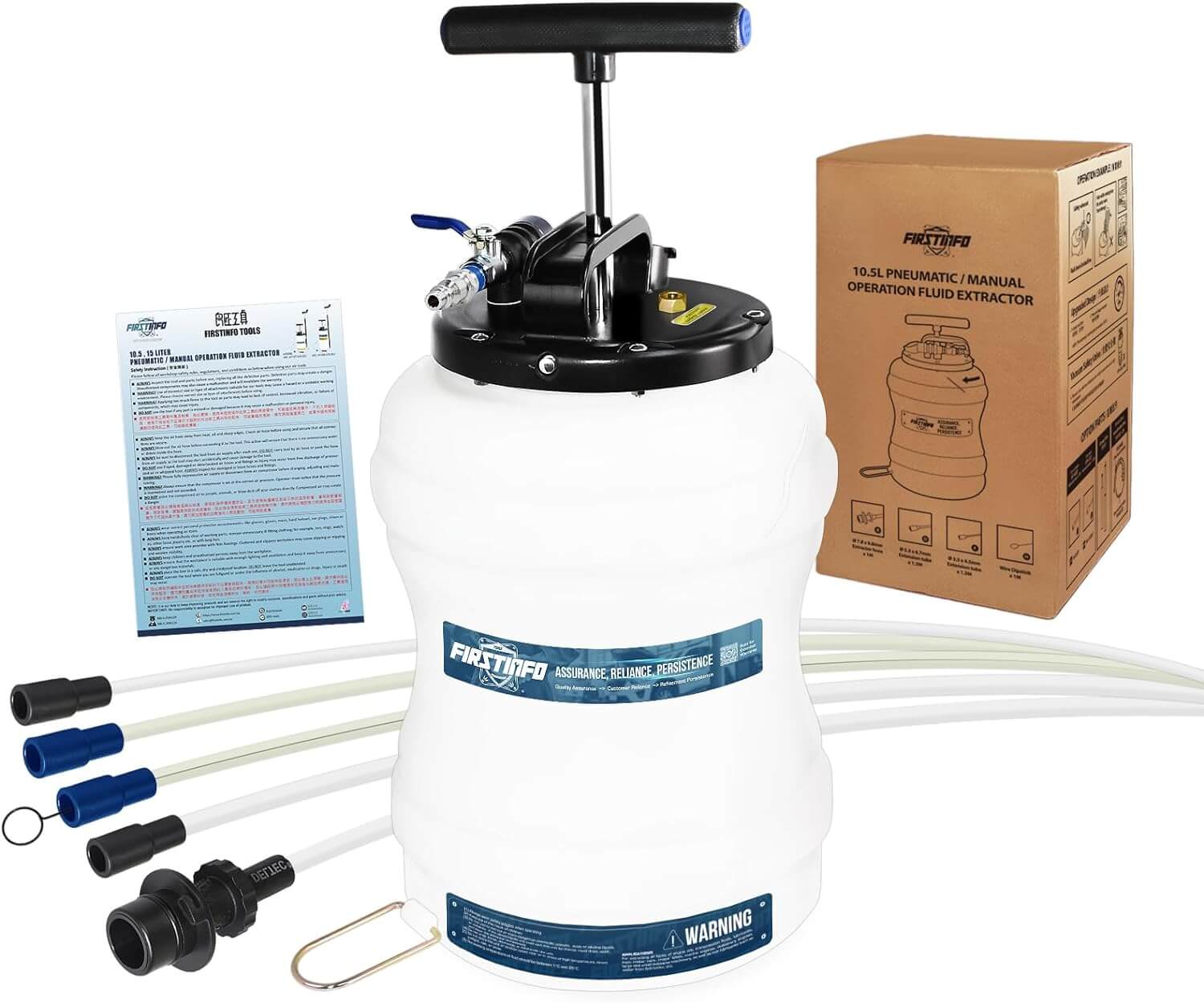The Relationship Between Oil Quality And Automotive Performance.
Have you ever wondered how the quality of oil can affect your car’s performance? In this article, we will explore the fascinating relationship between oil quality and automotive performance. Whether you’re a car enthusiast or simply want to understand the importance of oil in your vehicle, you’ll discover how choosing the right oil can have a significant impact on your car’s overall performance.
From engine efficiency to fuel economy, we’ll uncover the key factors that make oil quality a crucial aspect of maintaining a well-performing car. So, get ready to delve into the world of oil and uncover the secrets behind a smoother, more powerful ride.
Importance of Oil Quality in Automotive Performance
Role of oil in engine lubrication
Oil plays a crucial role in engine lubrication by forming a protective layer between moving parts. This lubricating film prevents metal-to-metal contact, reducing friction and wear. With high-quality oil, the engine components can move smoothly, maximizing performance and minimizing the risk of damage.
Effect of oil quality on engine efficiency
The quality of oil directly impacts engine efficiency. A higher quality oil with the right viscosity ensures proper lubrication, reducing resistance between components. This reduction in friction results in improved engine efficiency, as the energy previously wasted on overcoming friction can now be used to power the vehicle.
Significance of oil in reducing friction
Friction is the enemy of engine performance. High-quality oil creates a lubricating barrier that reduces friction and heat generation within the engine. By minimizing friction, the engine can operate more smoothly and efficiently. This not only improves performance but also helps to prolong the lifespan of crucial engine components.
Oil’s impact on overall engine performance
Oil quality is closely linked to overall engine performance. When the oil is of poor quality, it fails to provide adequate lubrication, leading to increased friction and wear. This can result in decreased performance, such as reduced horsepower and decreased fuel efficiency. On the other hand, using high-quality oil can optimize engine performance, ensuring a smooth and powerful driving experience.
Factors Affecting Oil Quality
Viscosity and its effect on automotive performance
Viscosity is a key factor in determining oil quality. It refers to the oil’s resistance to flow and plays a crucial role in maintaining proper lubrication. Different engines require oils with specific viscosity grades to function optimally. Using oil with the wrong viscosity can lead to poor lubrication, increased friction, and reduced performance.
Additives and their role in oil performance
Oil additives are chemical compounds that enhance the performance and protection capabilities of the oil. These additives can improve viscosity, prevent oxidation, enhance fuel efficiency, and reduce engine wear. High-quality oils often have a higher concentration of additives, which contribute to better performance and protection.
Oil degradation and its impact on engine functions
Over time, oil undergoes degradation due to exposure to high temperatures, contaminants, and chemical reactions within the engine. Degraded oil loses its viscosity, becomes less effective in reducing friction, and can lead to increased wear. Regular oil changes are essential to maintain oil quality and ensure optimal engine performance.
Contamination and its influence on oil quality
Contaminants such as dirt, dust, and metal particles can enter the engine and mix with the oil. These contaminants can compromise the oil’s ability to lubricate effectively, leading to increased friction and wear. Proper filtration, regular oil changes, and using high-quality oil filters are crucial in reducing contamination and maintaining oil quality.
Proper oil maintenance and its effect on performance
Proactive oil maintenance is vital for optimizing automotive performance. Regularly checking the oil level, monitoring for leaks, and following the manufacturer’s recommended oil change intervals contribute to keeping the oil at its best. Timely oil changes, using high-quality oil, and addressing any oil-related issues promptly ensure optimal engine performance and longevity.
Oil Quality Standards and Ratings
Understanding oil viscosity grades
Oil viscosity grades indicate the oil’s thickness and flow characteristics at different temperatures. The Society of Automotive Engineers (SAE) establishes viscosity grade standards. Common grades include 0W-20, 5W-30, and 10W-40. It is crucial to choose an oil viscosity grade that matches the manufacturer’s recommendations to maintain proper lubrication and optimize performance.
API (American Petroleum Institute) standards
The API sets standards for oil quality and performance. The API ratings include a combination of letters and numbers, such as API SN or API CJ-4. These ratings indicate the oil’s ability to protect against engine wear, and deposits, and provide suitable engine lubrication. Choosing oils with appropriate API ratings ensures compatibility and optimal performance for specific engine types.
OEM (Original Equipment Manufacturer) specifications
Automotive manufacturers often specify the preferred oil type and quality in their owner’s manuals. OEM specifications provide guidance on the specific oil requirements for a particular vehicle model. Adhering to OEM specifications ensures that the oil used meets the manufacturer’s standards, promoting optimal performance and longevity.
Choosing the right oil for optimal performance
To choose the right oil for optimal performance, consider factors such as the vehicle’s age, driving conditions, and manufacturer’s recommendations. Consult the owner’s manual or seek advice from a trusted mechanic to identify the best oil type, viscosity, and any required standards or specifications. Selecting high-quality oil that meets the vehicle’s specific requirements will help maximize performance and protect the engine.
Effect of Oil Quality on Engine Longevity
Oil’s role in engine wear prevention
High-quality oil with effective lubricating properties helps prevent excessive wear on engine components. By reducing friction and providing a protective barrier, oil minimizes the wear and tear that occurs during engine operation. Regular oil changes and using oil of appropriate quality enable long-lasting performance and extend the engine’s lifespan.
Impact of oil contamination on engine lifespan
Contaminants present in the oil, such as particles, sludge, and acids, can accelerate engine wear and significantly reduce its lifespan. These contaminants interfere with proper lubrication, leading to increased friction and component damage. Maintaining oil quality by adhering to recommended change intervals and using suitable filters helps prevent contamination-related engine issues and improves longevity.
Oil’s ability to regulate engine temperature
Oil also plays a vital role in regulating engine temperature. It helps dissipate heat generated by the engine and keeps it within the optimal operating range. High-quality oil with the right viscosity maintains proper lubrication and heat transfer, preventing overheating and potential damage to the engine. Adequate cooling prolongs engine life and ensures consistent performance.
Correlation between oil quality and prolonged engine durability
There is a direct correlation between oil quality and engine durability. Using inferior-quality oil or neglecting regular oil changes can lead to increased engine wear, reduced efficiency, and potential breakdowns. On the contrary, opting for high-quality oil, adhering to change intervals, and conducting routine maintenance significantly contribute to prolonged engine durability and reliable performance.
Fuel Efficiency and Oil Quality
How oil quality impacts fuel consumption
Oil quality directly influences fuel consumption. High-quality oil with optimal viscosity and cleanliness creates less internal resistance within the engine, allowing it to operate more efficiently. Reduced internal resistance means that less energy is wasted, resulting in improved fuel efficiency. Investing in better oil quality can lead to savings in fuel costs over the long term.
Clean oil and its effect on engine efficiency
Clean oil plays a vital role in maintaining engine efficiency. As oil circulates through the engine, it collects dirt, sludge, and other contaminants. Over time, these contaminants can clog oil passages, hinder proper lubrication, and negatively impact engine performance. Regularly changing the oil and using high-quality oil filters help keep the oil clean and promote optimal engine efficiency.
Influence of oil additives on fuel economy
Oil additives can contribute to improved fuel economy. Some additives, such as friction modifiers and detergents, reduce friction and keep engine components clean, resulting in smoother operation and better fuel efficiency. Advanced oil formulations with carefully selected additives help reduce energy losses within the engine and optimize fuel economy.
Optimizing oil quality for improved mileage
To optimize fuel efficiency and mileage, it is essential to prioritize oil quality. Choosing high-quality oil with suitable viscosity, utilizing additives designed for improved efficiency, and maintaining clean oil are crucial steps. Regular oil changes, adherence to manufacturer recommendations, and proper maintenance practices ensure that the oil functions optimally, leading to improved mileage and fuel efficiency.
Performance Impact of Oil Change Intervals
Effects of extended oil change intervals
Extending oil change intervals beyond the manufacturer’s recommendations can have detrimental effects on engine performance. As oil ages, it loses viscosity, becomes contaminated, and its lubricating properties degrade. Extended oil change intervals can result in increased friction, wear, and potential engine damage. Adhering to proper change intervals ensures that the engine receives the lubrication necessary for optimal performance and longevity.
Benefits of regular and timely oil changes
Regular and timely oil changes offer several benefits for engine performance. Fresh oil maintains proper viscosity, lubricates the engine effectively, and helps reduce friction and wear. Regular oil changes also enable the removal of harmful contaminants, preventing their buildup and potential damage to engine components. By consistently changing the oil according to the manufacturer’s recommendations, one can ensure optimal performance and protect the engine’s health.
Oil change recommendations for different driving conditions
Different driving conditions, such as extreme temperatures, stop-and-go city driving, or towing heavy loads, can place additional stress on the engine and oil. In such cases, following the manufacturer’s recommendations for oil change intervals is crucial. Severe driving conditions may require more frequent oil changes to maintain optimal performance. Consult the owner’s manual or seek guidance from a trusted mechanic to determine the appropriate interval for specific driving conditions.
Maintaining the right oil level for optimal performance
Maintaining the proper oil level is essential for optimal engine performance. Insufficient oil can lead to inadequate lubrication, resulting in increased friction and wear. Conversely, overfilling the oil can cause foaming, inadequate cooling, and potential damage to engine components. Regularly checking the oil level and ensuring it falls within the recommended range is vital for maintaining optimal performance and protecting the engine.
Oil Types for Enhanced Performance
Conventional vs. synthetic oil and performance differences
Conventional and synthetic oils have distinct characteristics that can affect engine performance. Conventional oil, derived from crude oil, is more cost-effective but may require more frequent changes. Synthetic oil, on the other hand, offers superior performance and protection due to its engineered molecular structure. Synthetic oil exhibits better viscosity stability, improved lubrication, and enhanced resistance to extreme temperatures. Consider the vehicle’s requirements and consult with professionals to determine the best oil type for enhanced performance.
High-performance and racing oils for specialized needs
For high-performance vehicles and racing applications, specialized oils designed for extreme conditions are available. These oils are formulated to withstand high temperatures, intense strain, and heavy loads, providing superior protection and performance. Racing oils often have unique viscosity requirements and an increased concentration of additives to ensure optimal lubrication and reduce friction in high-performance engines.
Bio-based and eco-friendly oils for sustainable performance
Increasing environmental awareness has led to the development of bio-based and eco-friendly oils. These oils are derived from renewable sources and offer comparable performance to traditional oils while reducing the environmental impact. Bio-based oils are biodegradable and have a lower carbon footprint, making them a suitable option for those seeking sustainable performance without compromising engine protection.
Exploring alternative oil types for specific automotive requirements
In addition to conventional and synthetic oils, various alternative oil types cater to specific automotive requirements. These include hybrid-specific oils, engine oils designed for electric vehicles with reduced internal combustion engines, and oils for specialized systems such as turbochargers or variable valve timing mechanisms. Exploring these alternatives can help meet specific vehicle needs and optimize performance.
Corrosion Prevention and Oil Quality
Oil’s role in protecting engine components from corrosion
Oil acts as a protective barrier against corrosion, safeguarding engine components from damage caused by moisture and chemical reactions. High-quality oils contain corrosion inhibitors that coat metal surfaces and prevent the formation of rust and other corrosive substances. Proper oil maintenance, regular changes, and using oils with corrosion-resistant properties contribute to engine longevity and performance.
Impact of oil quality on rust and sludge formation
Poor oil quality can contribute to the formation of rust and sludge within the engine. Rust can corrode metal surfaces, leading to engine damage and decreased performance. Sludge, a thick, gel-like substance, can build up and impede oil flow, resulting in inadequate lubrication and increased friction. Using high-quality oils and adhering to proper maintenance practices help prevent rust and sludge formation, preserving engine performance.
Preventing oxidation and its effect on performance
Oxidation, the reaction of oil with oxygen, can result in oil degradation, viscosity changes, and reduced performance. High-quality oils contain antioxidants that inhibit oxidation, maintaining the oil’s effectiveness for a longer duration. Regular oil changes, proper storage, and using oils with excellent oxidation resistance help preserve performance and prolong oil lifespan.
Ensuring proper storage and handling of oil to prevent degradation
Proper storage and handling practices are crucial in maintaining oil quality. Exposure to extreme temperatures, moisture, and contaminants can degrade oil and impact performance. It is essential to store oil in a cool and dry environment, away from direct sunlight and potential sources of contamination. Following manufacturer guidelines for oil storage and handling helps prevent degradation, ensuring optimal performance when the oil is used.
Oil Analysis and Performance Monitoring
Benefits of regular oil analysis in evaluating performance
Regular oil analysis provides valuable insights into engine performance and oil quality. Oil analysis involves examining certain properties, such as viscosity, wear metals, and contaminants. By analyzing oil samples, potential issues can be identified early, allowing for timely maintenance and proactive measures to preserve engine performance. Oil analysis provides a cost-effective way to monitor performance and ensure optimal oil quality.
Identifying potential engine problems through oil inspection
Oil inspection can reveal signs of potential engine problems. By examining the oil’s color, consistency, and presence of contaminants, one can detect issues such as coolant leaks, fuel dilution, excessive wear, or the presence of metal particles. Early identification of these problems through oil inspection enables prompt diagnostics and necessary repairs, preventing further damage and improving overall engine performance.
Monitoring oil condition for timely maintenance
Monitoring the condition of the oil through regular inspections and analysis helps identify when it is time for maintenance. As oil degrades and accumulates contaminants, its lubricating properties diminish, and its ability to protect the engine decreases. Regular monitoring allows for timely oil changes, filter replacements, and addressing potential issues before they escalate, ensuring continuous optimal performance.
Utilizing oil analysis for optimizing automotive performance
Oil analysis can also be used to optimize automotive performance. By monitoring various oil properties, such as viscosity and wear metals, adjustments can be made to improve performance. For example, adjusting oil change intervals, using different oil types, or modifying driving habits based on analysis results can contribute to enhanced performance, increased efficiency, and prolonged engine durability.
The Future of Oil and Automotive Performance
Emerging trends in oil technology and its impact on performance
The future of oil and automotive performance holds promising advancements in technology. Ongoing research aims to develop oils with even better lubricating properties, increased durability, and improved cleanliness. As engines evolve, new oil formulations that cater to the changing demands of advanced technologies, such as hybrid and electric vehicles, are being developed to optimize their performance.
Advancements in additive formulations for enhanced engine efficiency
Additives play a crucial role in enhancing engine efficiency, and ongoing advancements in additive formulations aim to further optimize performance. New additives are being developed to reduce friction, improve fuel economy, and provide superior protection against wear. Advancements in additive technology continue to push the boundaries of engine efficiency, allowing for increased power and improved performance.
Environmental considerations and sustainable oil solutions
With growing environmental concerns, the future of oil and automotive performance emphasizes sustainability. More emphasis is being placed on developing bio-based oils and eco-friendly lubricants made from renewable sources. This shift towards environmentally responsible solutions ensures optimal engine performance while minimizing the environmental impact of oil usage.
Future challenges and opportunities in improving oil quality for automotive performance
The future presents both challenges and opportunities in improving oil quality for automotive performance. Striking a balance between efficiency, durability, and environmental considerations remains a key challenge.
However, ongoing research and technological advancements provide opportunities to overcome these challenges, ultimately leading to better oil quality and enhanced automotive performance. Addressing emerging issues and adapting to evolving engine technologies will fuel innovation and drive the continuous improvement of oil quality for automotive applications.
In conclusion, oil quality plays a vital role in automotive performance. Optimal oil quality ensures efficient engine lubrication, reduces friction, and protects against wear. Factors such as viscosity, additives, contamination, and proper maintenance significantly impact oil quality.
Adhering to oil quality standards and ratings, choosing the right oil type, and maintaining recommended change intervals contribute to engine longevity and fuel efficiency. Additionally, oil analysis and performance monitoring provide invaluable insights for maintenance and optimization. Looking ahead, advancements in oil technology, additive formulations, and sustainable solutions will shape the future of oil and further enhance automotive performance.


